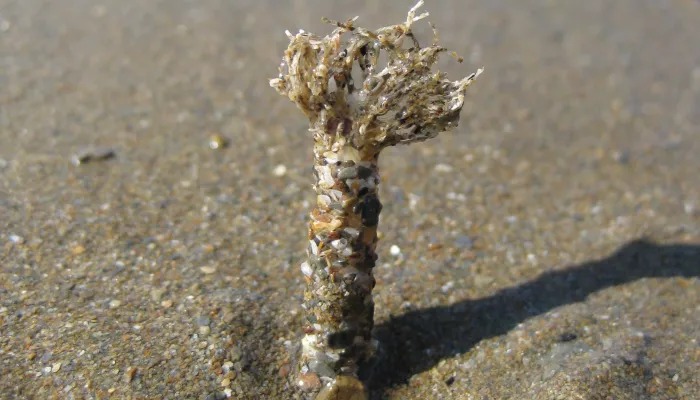Lugworm
Have you ever seen those worm-like mounds on beaches? Those are a sign of lugworms! The worms themselves are very rarely seen except by fishermen who dig them up for bait.

Providing fertility and life to the ocean floor, discover the diversity of worm species living in our seas using our handy species identification guides!
Have you ever seen those worm-like mounds on beaches? Those are a sign of lugworms! The worms themselves are very rarely seen except by fishermen who dig them up for bait.
Ever noticed lots of little white spirals on seaweed fronds on rocky shores? These are tiny tube worms!
Ever spotted a honeycomb-like mound on the beach and wondered what it was? It's a reef built entirely by worms!
This strange furry creature often found washed ashore after storms is actually a kind of worm!
This worm builds its own home out of bits of shell and sand. It can be spotted on the shore all around the UK.
The ragworm is highly common on our shores, though rarely seen except by the fishermen that dig them up for bait.
Planaria are flatworms in the phylum Platyhelminthes with amazing regeneration abilities giving them the title 'immortal under the edge of a knife'. There are many different species that inhabit freshwater, marine and terrestrial ecosystems.
Horsehair worms are parasitic worms of the clade Nematoida alongside their sister taxa Nematoda, the roundworms. The most famous trait of certain species of horsehair worms is the ability to alter the behaviour of grasshoppers and crickets to seek water,…
This vibrant green worm is arguably the most attractive worm found on the rocky shore!